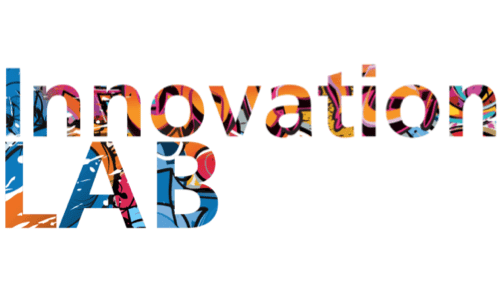Wolfgang Kirsch: „Digitization of our organization goes beyond a mere technical challenge“ (Keynote Speech)
Dieser Text ist die gekürzte Fassung der Rede, die Wolfgang Kirsch, Vorstandsvorsitzender der DZ BANK, am 13. Juni 2018 anlässlich der „Steffens Conference“ an der Frankfurt School of Finance and Management gehalten hat.
As the title of my presentation – referring to the influential book of “management guru” Henry Mintzberg – suggests, I do believe that there is a need to adapt to new realities – both in business and in business education. The objective of my presentation is twofold. First, I would like to share my perspective on key challenges the banking industry is currently facing. Secondly, I want to dwell on how we deal with them and how business schools and education in more general terms can help us in this regard.

Wolfgang Kirsch (* 19. März 1955 in Bensberg) seit 15. September 2006 Vorstandsvorsitzender der DZ Bank.
I would like to highlight three main challenges for the banking industry or as I like to call it triple trouble. The first challenge refers to the long phase of low interest rates putting pressure on the ability of banks to earn money with their most basic task – lending and taking deposits. Ever growing regulation represents the second challenge. In the aftermath of the financial crisis many new rules and regulations, vital in stabilizing the financial sector and ensuring its stability, were introduced.
However, we witnessed a mushrooming of new regulatory and supervisory bodies and with it a constant flow of new and even more detailed regulation. As a result the room for banks to do business is reduced, for example by raising capital requirements that render rather important business activities – like infrastructure financing – simply unsustainable.
But let me move on to the third and probably most fundamental challenge: Digitization.
Its impact is in fact manifold. First of all, we are witnessing changes in customer expectations especially when it comes to younger generations. They do no longer consider the branch the preferred point of contact – it’s rather their mobile phone. Whether we like it or not, the points of contact have changed. Of course, banking is a service industry yet the new focus on customer experience and heightened client expectations force us to change, to rethink customer interaction and pursue a so called “omni-channel” approach.
The second aspect of digitization is new competition. In the last few years more and more so called fintechs broke into virtually every aspect of our value chain. They often lack a huge customer base, but have a very strong understanding of customer needs and how to create an excellent user experience. The rise of fintechs did not coincide with the demise of traditional banks – as some commentators and experts predicted – yet they surely put pressure on traditional banks. While fintechs and banks – at least in the beginning – were rivals, we are increasingly working together in many fields.
Of course, if the “four horsemen” of digitization Google, Apple, Facebook and Amazon decided to enter banking, we would be talking about a whole different scenario. They have the technology, the financial means and the customer base. But for the moment their interest in banking remains rather limited. Regulation probably still is the highest barrier to entry in banking.
Digitization however does not only alter client expectations and bring new competition, it also deeply affects us as an organization. The digital transformation of our processes and business models is both an opportunity and necessity. Digital tools and methods are not only key to improve customer experience and meet customer needs, they are critical in redesigning our business.
As permanently low interest rates, rising regulatory requirements and increased competition put pressure on banking profitability, digital transformation provides an opportunity to increase efficiency. Just think of the lending process that today involves many single process steps – lots of paperwork included.
However, the digitization of our organization goes beyond a mere technical challenge. It does not only change our processes and business models it also affects the way we work in many ways – often referred to as the paradigm of “New Work”. While this discussion also touches upon much more fundamental questions, let me outline the more practical aspects and what they mean for us as an organization and for the people we recruit and train.
First, collaboration and more flexible models of working are gaining importance. The success of an organization will increasingly depend on the ability to work together and to enable social collaboration rather than relying on top performers and “lone wolfs”
Second, work-life blending replaces the strict separation of work life and private life. As an organization we need to find a way to support our employees in finding the right balance which obviously is subject to change during different phases in life.
Third, there is a new need for flexibility when it comes to contractual arrangements and working models. I wouldn’t go so far as to say that “9 to 5 is dead”, but we will see an increase of free-lancing and less presence-based work. This means that organizations need to make sure they can coordinate projects accordingly. Managing workflows and enabling creativity, which is a team issue, under such circumstances is much more complex.
Fourth, the idea of intrapreneurship will help organization to strengthen their potential to innovate and provide employees with a new and challenging task to keep them engaged and motivated.
Fifth, leadership and organizational culture have to adapt to this new flexibility. Leadership will need to shift from “controlling and commanding” towards “enabling and connecting people” while ensuring of course that someone still bears responsibility.
The sixth and probably most relevant aspect for our discussion today is the impact on knowledge and competencies, as digitization both reduces the “half-life” of knowledge and alters the perspective on lifelong learning and on the balance between hard and soft skills.
Today it seems that education has become much more or even too specialized – from 2005 to 2017 the number of degree programs in Germany grew from 12.000 to 19.000. One may wonder, if learning more and more about less is the right way – this holds especially true for business schools that want to educate the managers of tomorrow with general management skills. What seems to be even more critical is that a lot of the knowledge that is acquired today, may no longer be up to date in the much nearer future.
Of course hard skills and a sound education will remain relevant, but I think that teaching “classic techniques” will gain new relevance for business schools. Future managers will need to sharpen their analytical capacities and the right mix of case studies, essays, presentations and group-based learning will be the right way to prepare them for the challenges ahead.
There is a vital discussion on so called “future skills” outlining what will be necessary to succeed in the future labor markets. A recent contribution by McKinsey outlined the following:
- In the field of professional competencies methodological skills, programming and data-science are considered key.
- In the field of job-oriented competencies entrepreneurship and product-oriented thinking will gain importance.
- When it comes to personal competencies, a collaborative mindset, interdisciplinary problem-solving and independent judgement are highlighted.
Let me add two more general requirements: First, we need to put a new focus on soft skills and the willingness to continuously learn new things in the course of our careers. Second, we need to be ready and willing as organizations to give young people responsibility from early on, if we want to develop management talent in a broader sense.
I will return to the point of life-long learning in a minute, as I believe that business schools will play a critical role in this context. But let me very briefly reflect on the impact of new work on our organization.
For one, we need to understand that we are not only facing new customer expectations but also new employee expectations in the context of digitization. When the impact of digitization on recruiting is discussed, we are often focusing on the need to broaden our workforce – in other words, we will still need credit analysts, but we will increasingly need data scientists. But if we want to attract the younger generation, we also need to be aware of their needs and expectations.
We need to understand how they want to work and make sure that our organizational design and corporate culture provide the right environment. I think that this transformation will be very critical for banks but it will also be very challenging as we have to address trade-offs and specifics of our sector. For example, regulators and supervisory bodies are not exactly fans of agility, they are rather looking for stability – and rightfully so. And while start-ups may easily embrace the paradigm “move quick and break things” and promote “trial and error”, banks traditionally don’t have a high tolerance for mistakes and as customers you might agree that this is actually a good thing.
While acknowledging these limitations, they can be no excuse. Banks will need to become more flexible if they want to remain relevant and attract the people they need. At the same time, we should not only consider the future of our organization, but also focus on its presence. As we are transforming our processes and business models, we must also make sure that our current workforce possesses the necessary knowledge to fulfill its task.
We – and this is where business schools come in – need to provide them with the skills to succeed in a digital working world – which also means, that we take a more continuous perspective on education. Professional expertise will remain an important building block, but continuous education needs to broaden the focus towards work-related competencies and personality-forming. If we do agree that social cooperation will be a critical factor for a successful organization, we need to ensure that people with different backgrounds and experiences can work together in a collaborative way.
Speaking from our own experience, we have established a format called Innovationlab at DZ BANK dedicated to develop prototypes and new product solutions using agile working methods and teams from diverse backgrounds and functions – bringing together classic bankers, risk managers, software developers, marketing specialists and so on.
While I believe that banks need to think of themselves more as technology companies, it doesn’t mean that everybody has to be a software engineer. What is critical however, is a shared understanding of the fundamentals of the digital economy, the importance and use of data, strategic priorities and the individual contribution. While I am aware that this is a leadership challenge as well, I would like to believe that this is an important opportunity for business schools to contribute to the success of organizations in a digitized world.
So what does business expect from business schools in this regard?
In the spirit on Henry Mintzberg, I would first like to highlight that professional expertise remains vital, but that business education should put more emphasis on abilities to cope with change and uncertainty. Models and analytical tools are important, yet what is even more vital is to come up with new solutions and creative thinking rather than relying on standard solutions.
We are currently seeing a trend in business education, with more and more business schools reducing their on campus programs in favor of E-learning offerings. I think, however, that the classical case study and group learning still has its merits, as it strengthens analytical skills and cooperation and of course also helps to build networks that will be valuable throughout individual careers. A balanced approach blending e-learning and presence-based learning seems to be the right way in my mind.
Second, digitization and its impact should become a key component of the core curriculum. In all fairness, business schools were “early adopters” and this topic now features prominently in most programs, but I believe that the cultural aspects of digitization – most importantly how one ensures effective collaboration – deserve more attention.
Third, business schools and especially the teaching staff should keep a close eye to market developments and the challenges organizations are currently facing. This will not only help to ensure the timeliness of what is taught in the class room, but can also serve as an important input for research and joint projects bringing together academia and “business reality”. Of course leading business schools are already quite active in this regard l, yet I believe that in more general terms that there is still room for improvement.
Fourth, business schools should consider new ways to position themselves as partners in continuous learning. In light of my earlier comments one thing should have become clear: In a digitized world, individuals and organizations cannot only rely on their knowledge, but on their capacity to learn and cope with change.
Business schools can serve as important partners in this regard, not just supporting business in educating the workforce of the future or support the management through executive education, but as a knowledge partner in more general terms. For example by building corporate universities together with organizations or by developing and offering classes online and through Massive Open Online Courses – as some business schools already do.
My fifth and final recommendation is much more analogue in nature. When I ask myself what I am looking for in an employee, before I think of digital or professional skills, I think of basic civic values. While this may sound a little “anachronistic” in the context of all this talk on digitization, I do believe that values are critical for long-term success – and I think that our organization is a living proof of this perception.
We are not looking for mercenaries but for responsible individuals that identify themselves with the values of our organization focusing on cooperation and individual responsibility. And while I am aware that this plea also is directed towards society, family and the educational system in more general terms, I would like to believe that business schools can have a positive impact in this regard. Because even though we may believe that there would be no successful business without mastering digitization, mutual trust and integrity are the most basic conditions for sustainable growth and a successful business.
Ladies and gentlemen,
i’ve addressed the three most basic challenges of the financial service industry.
Evidently we are currently in the midst of fundamental change. The consultancy Oliver Wyman predicted in its last banking report that in 10 to 15 years from now the number of banks in Germany will decrease from 1600 to 150.
We are facing the fourth industrial revolution – increasing digitization of analogue tasks and techniques and the integration of cyber-physical systems. The process of automation and the use of artificial intelligence will replace jobs in the banking industry – a manifest disruptive risk for bank employees that can only be mitigated by high educational levels and reskilling.
Business schools can lead the way in this regard and position themselves as partners in this process, but they have to screen and adapt their teaching program continuously – time to market matters!
Diese Themen interessieren uns
Lean and Secure Decentralized Delivery-versus-Payment (DvP) for Securities Settlement

22. Dezember 2023
FinTech Innovationen in Asien – Ein Blick auf das FinTech Festival in Singapur

3. November 2023

